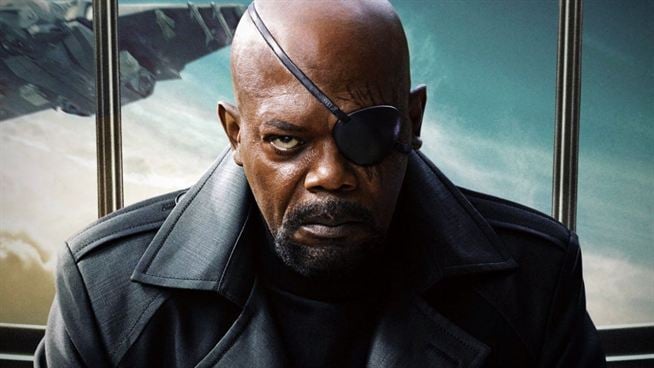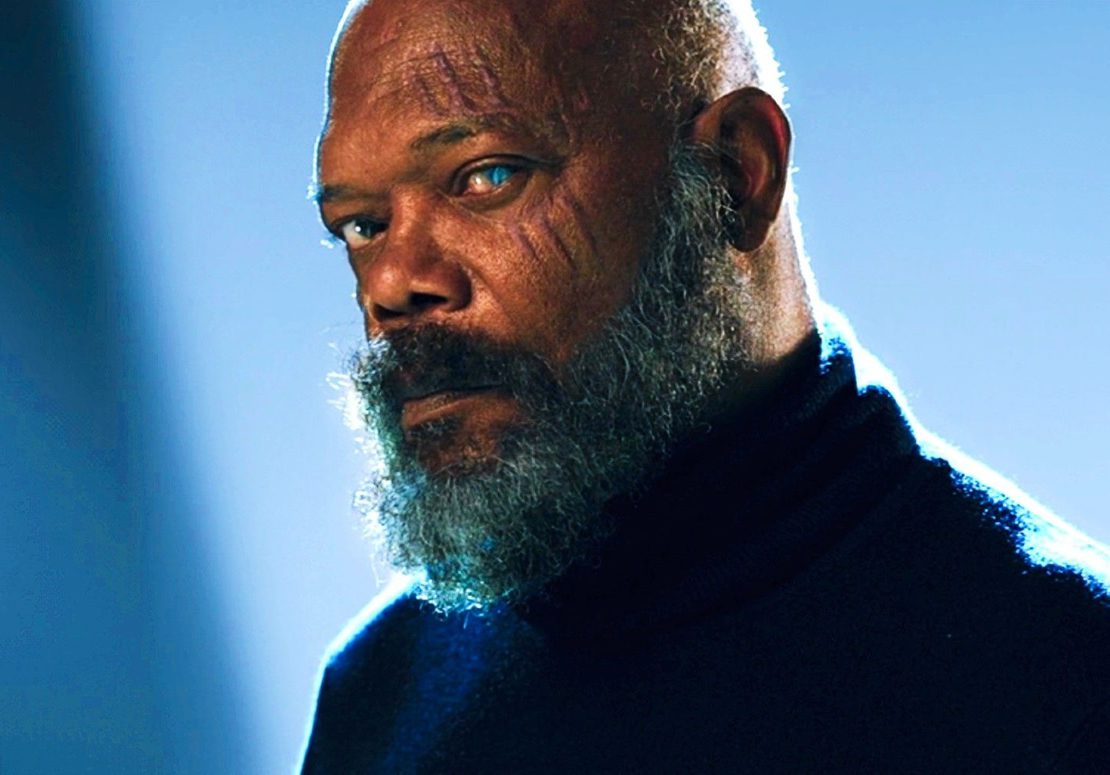Samuel L. Jackson
Samuel L. Jackson

Samuel Leroy Jackson, born on December 21, 1948, is an American actor renowned for his versatility and dynamic performances. His films have collectively grossed over $27 billion worldwide, making him the highest-grossing actor of all time. In 2022, he received the Academy Honorary Award, recognizing him as a cultural icon whose impactful work has transcended genres, generations, and audiences globally.
Jackson's journey in the entertainment industry began on the stage, where he made his professional theatre debut in "Mother Courage and Her Children" in 1980 at The Public Theatre. Over the years, he originated notable roles such as Private Louis Henderson in "A Soldier's Play" off-Broadway from 1981 to 1983 and Boy Willie in August Wilson's "The Piano Lesson" at the Yale Repertory Theatre in 1987. He portrayed Martin Luther King Jr. in the Broadway play "The Mountaintop" in 2011 and received acclaim for his performance.
His early film roles in the late 1980s and early 1990s showcased his talent and range, including appearances in "Coming to America" (1988), "Juice" (1992), "True Romance" (1993), "Menace II Society" (1993), and "Fresh" (1994). Collaborations with director Spike Lee in films like "School Daze" (1988), "Do the Right Thing" (1989), "Mo' Better Blues" (1990), and "Jungle Fever" (1991) contributed to Jackson's rising prominence.
However, it was his role as the charismatic hitman Jules Winnfield in Quentin Tarantino's "Pulp Fiction" (1994) that propelled him to stardom. His performance earned him a BAFTA Award and an Academy Award nomination for Best Supporting Actor.
Jackson's career continued to flourish with diverse roles, including his portrayal of Jedi Master Mace Windu in the "Star Wars" prequel trilogy (1999–2005) and Nick Fury in numerous Marvel Cinematic Universe films, starting with "Iron Man" (2008). He also provided his voice for the character Lucius Best/Frozone in Pixar's "The Incredibles" (2004) and its sequel.
Throughout his career, Jackson has appeared in a wide range of films, from action-packed blockbusters like "Die Hard with a Vengeance" (1995), "XXX" (2002), and "Kong: Skull Island" (2017), to dramas like "A Time to Kill" (1996) and "Coach Carter" (2005). He has showcased his talent in thrillers such as "Unbreakable" (2000) and "Glass" (2019), as well as comedies like "Snakes on a Plane" (2006) and "Kingsman: The Secret Service" (2014).
Jackson's contributions to the entertainment industry extend beyond acting, as he has also ventured into producing and humanitarian efforts. His enduring impact on cinema and his ability to captivate audiences across various genres solidify his status as one of the most revered actors of his generation.
Samuel Leroy Jackson's upbringing and early life experiences greatly influenced his perspective and activism. Born in Washington, D.C., on December 21, 1948, Jackson grew up in Chattanooga, Tennessee, under the care of his mother, Elizabeth Harriett, a factory worker, and his maternal grandparents, Edgar and Pearl Montgomery. His father, Roy Henry Jackson, lived separately and struggled with alcoholism, leading to minimal contact between them.
Raised in a segregated environment, Jackson attended segregated schools and graduated from Riverside High School in Chattanooga. Despite facing challenges such as a stutter during childhood, Jackson found solace and passion in music, playing various instruments in the school orchestra. Initially interested in marine biology, he attended Morehouse College in Atlanta, Georgia, but discovered his love for acting after joining a local theater group.
Jackson's activism was sparked by significant events like the assassination of Martin Luther King Jr. in 1968, which he attended as one of the ushers at King's funeral. He participated in equal rights protests and even took part in a protest at Morehouse College, where he and other students held members of the college's board of trustees hostage, demanding reforms in the school's policies. Despite facing legal consequences for his actions, Jackson remained committed to social change and activism.
During his college years, Jackson was drawn to the Black Power movement and became involved in activism alongside notable figures like Stokely Carmichael and H. Rap Brown. However, concerns for his safety prompted his mother to send him to Los Angeles, away from potentially dangerous confrontations. While Jackson expressed empowerment through his involvement in the movement, he ultimately pursued his passion for acting, earning a degree in drama from Morehouse College in 1972.
Throughout his career, Jackson has remained vocal about social issues and has used his platform to advocate for change. While he denied being a member of the Black Panther Party in a 2018 interview, his experiences with activism and social justice movements have undoubtedly shaped his worldview and influenced his approach to storytelling and advocacy.
Samuel Leroy Jackson's journey to becoming a prominent actor was marked by a series of academic and career shifts before he found his passion in drama. Initially majoring in marine biology at Morehouse College, he later switched to architecture before ultimately settling on drama. This decision came after taking a public speaking class and appearing in a production of The Threepenny Opera, which sparked his interest in acting.
Jackson's early acting career included roles on the stage, where he appeared in productions such as Home and A Soldier's Play, the latter of which served as the inspiration for the 1984 film A Soldier's Story. He also ventured into television films before making his feature film debut in Together for Days (1972), a blaxploitation independent film.
In 1976, Jackson moved from Atlanta to New York City, where he spent the next decade honing his craft on stage. He appeared in various stage plays, including premieres at the Yale Repertory Theater, such as The Piano Lesson and Two Trains Running. Despite his talent and dedication, Jackson faced personal struggles during this time, including addictions to alcohol and cocaine, which affected his professional pursuits. As a result, he was unable to proceed with the Broadway productions of The Piano Lesson and Two Trains Running, with actors Charles S. Dutton and Anthony Chisholm ultimately taking his place.
Despite these setbacks, Jackson's commitment to his craft remained steadfast, and he continued to work diligently to overcome his personal challenges and establish himself as a formidable actor in the entertainment industry.
References
- "Box Office Mojo – People Index". Box Office Mojo. Archived from the original on June 27, 2019. Retrieved October 17, 2019.
- ^ Powers, Lindsay (October 27, 2011). "Samuel L. Jackson Is Highest-Grossing Actor of All Time". The Hollywood Reporter. Retrieved January 6, 2012.
- ^ "Samuel L. Jackson Movie Box Office Results". Box Office Mojo. Retrieved August 31, 2019.
- ^ Lisa, Andrew (October 22, 2020). "50 Highest-Grossing Actors of All Time". Yahoo! Finance. Retrieved May 31, 2023.
- ^ Ferme, Antonio (June 24, 2021). "Governors Awards: Samuel L. Jackson, Danny Glover, Elaine May and Liv Ullmann Set for Honorary Oscars". Variety. Retrieved June 24, 2021.
- ^ "'This is going to be cherished': Samuel L Jackson and Elaine May receive honorary Oscars". TheGuardian.com. March 26, 2022.
- ^ Ables, Kelsey (March 26, 2022). "Samuel L. Jackson accepts honorary Oscar in emotional ceremony". The Washington Post. Retrieved April 5, 2022.







































